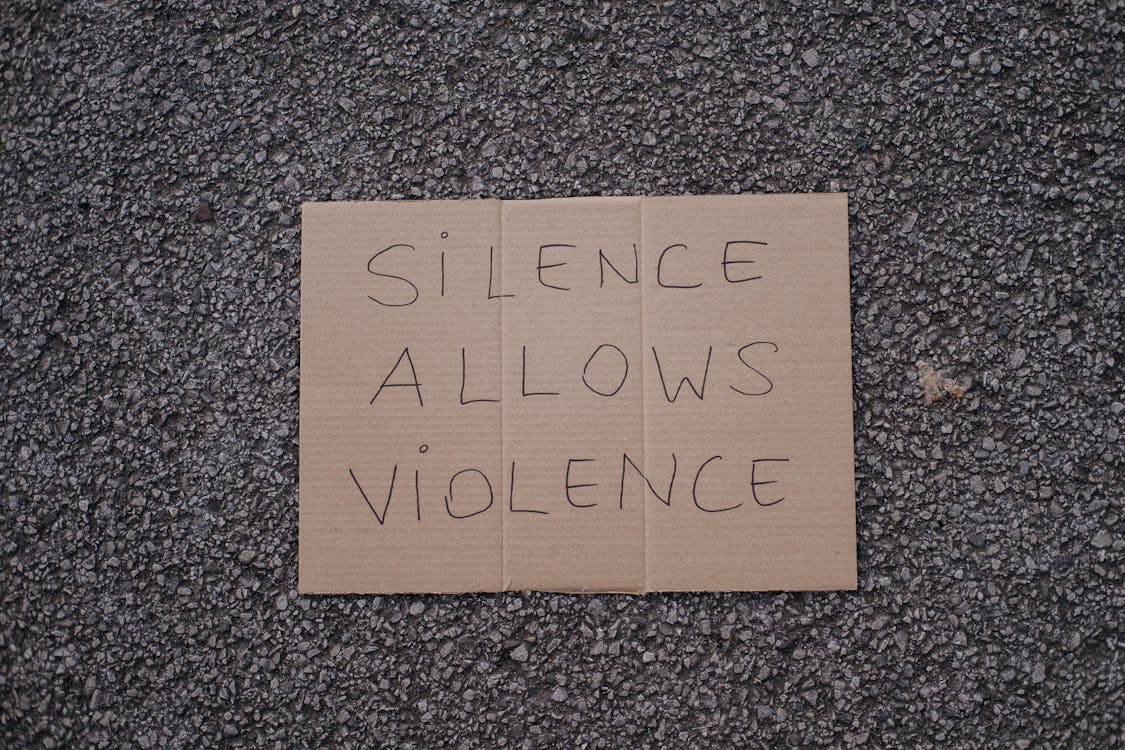Recognizing Emotional Abuse: Warning Signs, Patterns & Coping Mechanisms
7 minuteRead

When we’re talking to victims of abuse, the first thing we ask them is to show us the marks on their body which are a result of physical harm. Well, there’s nothing wrong in that. However, beyond physical abuse, there are several other forms of abuse which may be difficult to see, interpret and understand. One such form is emotional abuse. It can occur in a relationship, with a business partner, caretaker, close friend, sibling or parent. It is also referred to as psychological abuse. It can have a profound effect on the victim’s mental health as it is as damaging and destructive as physical abuse. Every emotional abuser has just one goal – to undermine another person’s feelings and scare, frighten and mistreat them.
When a victim faces regular episodes of emotional abuse, they tend to lose their confidence, self-respect and self-belief. They also lose their independence and feel like they have no say whatsoever. In certain cases, emotional abuse also takes the form of domestic violence. If abusive behaviour is not nipped in the bud, it can lead to isolation, stress disorders and even death by suicide.
Emotional Abuse Definition
Any kind of abusive behaviour which isn’t physical is referred to as emotional abuse. If it includes manipulation, verbal aggression, intimidation, humiliation or put-downs that leads to diminishing another person’s sense of identity or dignity, it is surely psychological abuse. When the victim is being abused day in and day out, they tend to feel trapped thereby experiencing severe anxiety, depression, post-traumatic stress disorder (PTSD) and even suicidal thoughts.
Identifying the Signs of Emotional Abuse
So, how do you know if you are emotionally abused? Among the different types of abuses that exist, emotional abuse is considered the most difficult to detect as it is often subtle. Also, studies reveal that individuals do not know that they’re victims of abuse till they identify certain obvious red flags.
Stop and think about your interactions with your partner, boss or parents. Do you feel like you deserve to be treated with more kindness and respect? Well, even if you experience a minor sign, talk about it. Don’t pacify yourself by taking up for the abuser or brushing off their actions. To help you get out of an emotionally abused relationship, we have listed a few warning signs/red-flags below:
- You’re accused of being selfish if you spend time with others
- Isolated from meeting friends or family
- You notice a drop in your confidence and self-belief
- You’re constantly asked to prove that you are faithful in the relationship
- Each and every action of yours is controlled (being asked to constantly show phone records and emails)
- You find yourself increasingly dependent over alcohol or drugs
- You’re scared that you might upset your partner or boss if you’re unable to meet their expectations
- Constant threats by the preparator that they will hurt themselves if you go away
- You’re no longer attached to material things such as property, money or clothes
- Being called out derogatory nicknames
- You’re constantly looking for escapist routes – holiday destinations, new jobs or a place to live
These are just a few warning signs that indicate you’re being emotionally abused. There are several others which can make a person feel inadequate, ashamed and in denial of themselves.
Patterns of Emotional Abuse
Emotional abuse isn’t a single event. It occurs over a period of time and is often repetitive. When the abuse is frequent, it can also be dangerous. Nobody can really tell they’re being emotionally abused until they get deeply entangled in its web. Abuse can even go unchecked if not detected in time. The features and patterns vary and differ from person to person. However, here are the most visible types and patterns of emotional abuse that exist:
Note: This by no means is an extensive list. There are many other forms of emotional abuse that only the person going through can understand.
- Verbal Abuse: Being called out names, yelling, insulting, threatening or highly critical behaviour.
- Gaslighting: Making you doubt your own thoughts and feelings, and even manipulating your sanity.
- Emotional Blackmail: Constant threats to the victim, their friends, pets and family. A pattern of threats and punishments are used to manipulate the victim over time. The perpetrator controls the victim to behave how they would like.
- Fear, Obligation & Guilt (FOG): Feeling afraid, intimidated or threatened. When you experience these feelings simultaneously, it can be alarming.
- Financial Abuse: Withholding your money or what is due to you, and preventing you from working/studying. It can even take the form of domestic violence.
- Bullying: Being accused of being “too sensitive” or “too emotional”, saying things repeatedly in order to hurt you, calling you names, publicly embarrassing you and having unrealistic expectations from you.
- Isolation: Limiting your freedom of movement, stopping you from doing the things you normally do and keeping you away from the public eye.

As mentioned earlier, the causes of emotional abuse within a relationship can vary for each individual. In certain cases, it can also be accompanied by physical and sexual abuse. However, to be counted as abuse, it doesn’t have to be accompanied by other forms of abuse. It’s serious enough on its own to be a matter of concern. Preparators of emotional abuse are usually individuals who had a traumatic childhood or bitter experiences in the early years of their life.
Dealing with Emotional Abuse: Moving Forward & Seeking Help
The scars of emotional abuse can be long-lasting. Therefore, it is important to address it before it blows out of proportion. Here’s what you can do:
- Stop Blaming Yourself
The first step you must take is to stop blaming yourself. If you’re someone who has been abused for months or years, you might start believing that there is something severely wrong with you. Remember, you are not the problem. If the abuser is behaving in a particular way, you have no control over it whatsoever. Don’t accept the abuser’s behaviour as your responsibility. You might try various ways to break their pattern of behaviour. However, you’re unlikely to succeed without professional help and guidance.
- Establish Boundaries
Try to stay away from the abuser as much as possible. If they start calling you names, demand things or start an argument, simply walk away from the situation. Don’t retaliate, try to soothe their feelings or apologise. Engaging with the abuser will only worsen the situation. If the abuser is a partner, you can end your relationship with them or if it’s your boss at work, you can simply quit your job. Once you set a personal boundary, stick to it and limit your association with them.
- Prioritise Yourself
Emotional abuse can take a toll on your mental and physical health. You might experience severe stress and anxiety, and physical changes in your body such as weight loss, obesity, acne and hair fall. It’s important to take care of your needs and prioritise yourself. Reach out to supportive friends and family members, do the things you love, exercise and meditate to heal. When you devote enough time towards resting enough and eating healthy, you will already start feeling better. You can even seek therapy that will help you in your recovery process.
- Turn to Support Groups
It can be very difficult to tell what an abuse victim is going through. Therefore, the best way in which you can vent your feelings is by speaking up. If there is a friend or family member you trust immensely, speak to them. Tell them how you’re feeling. You can even seek professional counselling or reach out to support groups on social media platforms. When you find people who are sailing in a boat similar to yours, it is easier to relate. Also, you tend to feel less lonely and isolated. This will also give you the solace that you are not alone recovering from abuse and will help you put things into perspective. In any kind of abuse situation, speaking up and therapy can reduce half the stress and trauma.
- Create an Exit Plan
You can’t stay in an abusive relationship forever, right? If your partner, boss or family member has no intention of changing, you have to work on an exit plan. You have to have a back-up option of getting out of a situation when the time comes. Discuss your plan with your support groups and the people who make you feel loved and strong.
However, it is important to remember that abuse often worsens when the victim decides to walk out. Therefore, your safety plan should be well thought-out to ensure the abuse doesn’t escalate. The best way to exit an unhealthy relationship is by finding a therapist who can help you recover and ensure you don’t have to look back.
If you’re experiencing any of the above symptoms, reach out for help immediately. Don’t take emotional abuse lightly. If you notice the red flags early in your relationship, it will be easier for you to move on without it taking much of a toll on your physical and mental health.
Write, Record and Answer! Consume Unlimited Content! All you need to do is sign in and its absolutely free!
Continue with one click!!By signing up, you agree to our Terms and Conditions and Privacy Policy.










